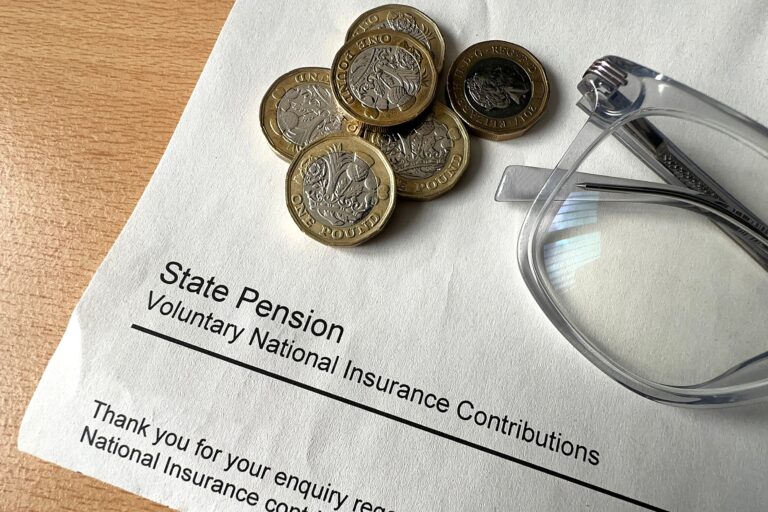Introduction
Welcome to the first of many LSG FP Insider Blogs. Building financial security for your future self involves a combination of saving, investing, and making informed decisions about your money. Here are some key steps to help you financially build for your future:
Set Financial Goals
Unlike starting a New Years Resolution this one is for keeps! You need to first start by defining short term goals, this could be as simple as saving for a rainy day or to go on that dream holiday. Then think about your medium term goals, which could be getting on the property ladder or if you have already achieved this, you may want a second home (buy to let) for additional income in retirement which leads me on to the long term goals. Your Long term goals should start with looking at having a retirement you would feel comfortable with, if you have debt you could work towards being debt-free, by paying off mortgage, car loans, and other outstanding debts. If you plan to have children or already do, you may look at establishing a fund to cover the costs of their education, whether it’s for college or other educational pursuits.
These are just some examples, for you to consider and you will need to prioritise these goals based on importance and timeline. Everybody’s goals are different and with the right planning and a trusted adviser regularly working with you monitoring and reassessing your goals, can help ensure that they remain realistic and achievable. Remember it is important to periodically review and adjust your long-term financial goals based on changes in your life circumstances, financial situation, and economic conditions.
Create a budget
We don’t like to think of the worse case scenario happening and often putting money aside each month can work in theory but not so much in practice. However, have you thought about what you would do if you needed money for something unexpected happening, perhaps the car needs fixing, or the washing machine has had its last spin. We can never predict what is around the corner but building an emergency fund can help you have that peace of mind, the rule of thumb is to have an emergency fund to cover 3-6 months’ worth of living expenses. This fund then acts as a safety net for unexpected expenses as mentioned above or in the event of a job loss, if the pandemic taught us anything is was that job security was anything but! So having an emergency fund provides a financial cushion until a new job is secured.
Having a well-funded emergency fund in place is a fundamental aspect of sound financial planning and can contribute significantly to financial resilience and stability.
Debt Management
With the cost of living increasing it is easy to find yourself reliant on credit cards to pay for shopping and this can prove to cost you more than you may think. With some credit card companies with high APRs and Cash Advances which are a NO, NO ! This is always a red flag to the credit card company that you have run out of cash from other areas and will look like you aren’t handling your debts, plus the cost of using this particular service can increase your monthly payment and become more of a headache in the long term! For some, paying off their credit card monthly saves on huge interest rates and keeps a tidy credit report. however, this isn’t reality for most but there is a way you can start to chip away at those outstanding balances by working towards paying off the ones with the high-interest debts, such as credit cards, and as quickly as you possibly can, because this can save you not only the interest rate plus the repayment, which when added together can be eye watering! You will need to gather all your debts which can be time consuming, but beneficial in the long run so prioritising those debts starting with the highest interest rates will save you money in the long run and create more disposable income.
Save Consistently
We have briefly mentioned savings earlier with building an emergency fund, however what if you are wanting to save for something in particular, maybe a wedding? A car? In order to achieve this you need to establish a regular savings routine this comes with what you have in the way of disposable income. Your savings routine could be weekly, bi weekly, or monthly this depends on how you are paid and when. One way to keep it regular and consistent is to consider direct debits to your savings account. You want to go with the best rate out there to have a annual return on your savings and many banks and building societies have competitive rates always do your research and make sure that the savings account is suitable to your needs for example, you may prefer easy access without restrictions which can give you less of annual interest rate or fixed term savings where you do not withdraw the money for 1-2 years which then in turn can give you a better rate.
Retirement Planning
For some people the thought of thinking about retirement seems a long way off, but for some it can be on the horizon and that is why it is important to know what pensions you have including work pensions, personal pensions and if they are working for you. Are you in an auto enrolment scheme at your workplace (we have an article on this section in our advice areas which could be useful for you, the link will be at the bottom of this post). Taking advantage of workplace retirement schemes and employer matched contributions can make a difference to your retirement pot. You will also need to take into consideration the state pension and when you are likely to receive this as this will form part of your retirement pot. Talking to a trusted regulated financial adviser who can work with you to achieve the retirement you deserve is the first step.
Conclusion
Education is key, you need to stay informed about personal finance, investment strategies and market trends. Celebrity Financial Journalists can give you pointers but often miss the key bits and they are not regulated advisers so there is no recourse if they misinform! First and foremost, it’s important to have all the facts and continuously educate yourself to make informed financial decisions. As with all savings and investments you need to understand the tax implications of your financial decisions, you want to optimise your investments and contributions to minimise your tax liabilities. Invest wisely, you need to diversify your investments across different asset classes (Stocks, Bonds & Property). Consider your risk tolerance are you a cautious person by nature do you like to take risks which could mean you are adventurous. What is your capacity for loss ? As we know markets can rise but they can also fall due to market events such as Ukraine War, Israel & Gaza Conflict, Houthis situation in the Yemen all these can make the markets unpredictable. Investment timeline is also a factor in choosing investments, the longer your investment horizon the longer your funds can recover from the ups and downs of market events. It is also important to regularly review your financial plan and adjust it based on changes in your life, goals or economic conditions.
Past Performance is not a reliable guide to future performance and the value of asset-backed investments can fall as can any income derived from them.








